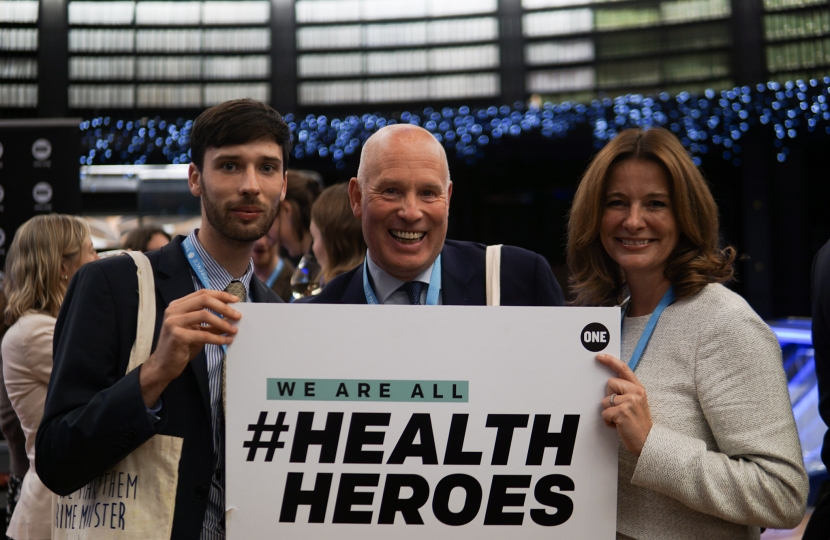
January 2019
Like you, I am proud of the excellent results our aid budget achieves in helping millions of the world's poorest and most vulnerable people. For example, between April 2015 and March 2018, DFID reached 26.8 million people with humanitarian assistance, supported 11.4 million children to gain a decent education, and supported 40.3 million people to access clean water and better sanitation.
As the Chair of the APPG for Sustainable Development Goals, I am working with my colleagues to ensure the 17 goals put forward by the UN are achieved. The aim is to do so over the next 15 years. These goals are:
1. No Poverty
2. Zero Hunger
3. Good Health and Well Being
4. Quality Education
5. Gender Equality
6. Clean water and sanitation
7. Affordable and Clean Energy
8. Decent work and economic growth
9. Industry, Innovation, and Infrastructure
10. Reduced Inequalities
11. Sustainable cities and communities
12. Responsible consumption and production
13. Climate action
14. Life below water
15. Life on land
16. Peace, Justice and strong institutions
17. Partnerships for the goals
You can find out more about this at: http://www.un.org/sustainabledevelopment/. I have a personal interest in ensuring people from all countries are living in comfortable, healthy environments. I feel the above goals can help achieve this.
I agree we need to ensure that our aid budget is spent in the best way possible. This is not only vital for those that UK aid helps, but also for the British taxpayers who deserve the best value for money and deserve the highest levels of transparency. UK aid works to achieve the Global Goals and the priorities set out in the 2015 UK Aid Strategy, to create a safer, healthier and more prosperous world for us all, regardless of which department is responsible for the spending. Efficiency and value for money are at the centre of all this work.
In August 2018 I was privileged to visit Tanzania to work alongside the charity, Plan International, and MPs from other parties, to visit a refugee camp. The Nduta camp that I visited was the size of a small town with 108,000 people living there. Situated remotely it took four planes and almost 24 hours to get there. The camp was vast and provided shelter, medical care, education, water, and food to its occupants who were not permitted to leave the camp or work. The conditions were difficult, and many people felt hopeless as their lives were "suspended", not able to go home but not able to get on either. Plan International focus on child protection, education in emergencies and youth vocational skills.
Despite the desperate situation it was humbling to see children continuing their schoolwork and young adults learning skills such as woodwork, basket weaving and pottery by hand. There was also a touch of normality with a highly contested football match with many of the young people supporting Manchester City and my home team, Liverpool. A poignant reminder of the power of sport.
Alongside Tanzanians, I met people from all over the world including the UK, India, South Africa, Australia, France, Canada and the US who give so much to those with so little. Clearly, a long-term solution is required as nobody would want to continue to live in a refugee camp. I was glad to see UK aid in action and thankful that we are a country that provides support for emergency responses to manmade or natural disasters.
Poverty reduction remains at the heart of UK aid spending and the Government remains committed to the 0.7 percent target and to untied aid. The challenges the world faces are changing and by working across government we can make use of a greater range of skills and expertise to deliver on our development goals. All UK official development assistance (ODA) spend meets the international ODA rules and DFID experts provide advice to the cross-government funds and departments to ensure that these criteria is understood and met.
As the Spending Review approaches, the Government remains committed to improving the lives of the world's poorest and marginalised, and Ministers continue to work to ensure all UK aid spending meets the highest standards of efficiency and transparency. For this reason, I do not feel the need to sign the open letter.
